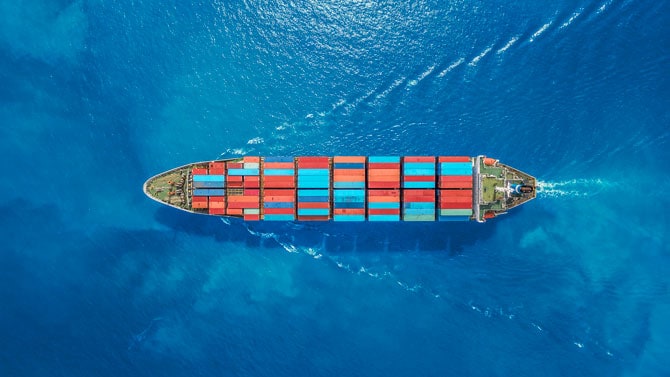What is CBAM?
The Carbon Border Adjustment Mechanism (CBAM) mandates that EU-based businesses importing iron, steel, fertilisers, electricity, aluminium, cement, and hydrogen report and offset the carbon dioxide emissions linked to these imports from outside the EU.
We are currently in the transitional period of CBAM, which began in October 2023. During this phase, businesses must start requesting and using real emissions data by the third quarter of 2024. The requirement to compensate for emissions, involving the purchase of CBAM certificates, is set to commence in January 2026.
For businesses, CBAM incurs two types of costs:
- CBAM certificates, priced according to the EU Emissions Trading System (ETS)
- Significant administrative costs associated with collecting and reporting emissions-related data.
CBAM services
The transition to CBAM
For each product type listed in the scope of CBAM, dependent on the commodity code, importers must submit quarterly reports detailing both direct and indirect emissions during the transition period.
The transitional period does not yet incur expenses associated with the purchase of certificates, since reporting does not yet require CBAM certificates to be surrendered. However, reporting is mandatory despite this.
It should be underlined that the implementation of reporting procedures during the reporting phase makes it possible to anticipate future costs associated with emissions in contracts, resale pricing, and supplier selection.
The full implementation of CBAM
When CBAM is fully implemented, its product scope is expected to expand. Importers will need to compensate for emissions associated with imported goods by purchasing and submitting CBAM certificates. These certificates will be priced based on a weekly average auction price of EU ETS allowances, expressed in €/tonne of CO2 emitted.
In preparation for the definitive period, we are continuously developing our tool to accommodate the requirements of the definitive period, making it easier for your company to evaluate the number of certificates needed, manage their purchasing, generate emission reports, and facilitate the handover of certificates.


Why should you choose PwC as your partner for CBAM obligations?
Our strength is cooperation between different teams. Our customs and tax technology teams support you in the automation of the CBAM obligations. In addition, if necessary, we offer legal services for drafting contractual obligations and logistics experts that can assist with eventual changes in your supply chains. Furthermore, we collaborate closely with our regional offices from around the world, which enables quick and effortless support in the collection of information from suppliers if necessary.
Tutorial video for our clients
How to submit the CBAM report to the registery
In case of any issues, please contact our experts.
How can we help you?
Contact our sustainability specialists
Ota yhteyttä


Arthur Österholm
Customs, Excise & International Trade, PwC Finland
puh. +358 (0)20 787 7367







